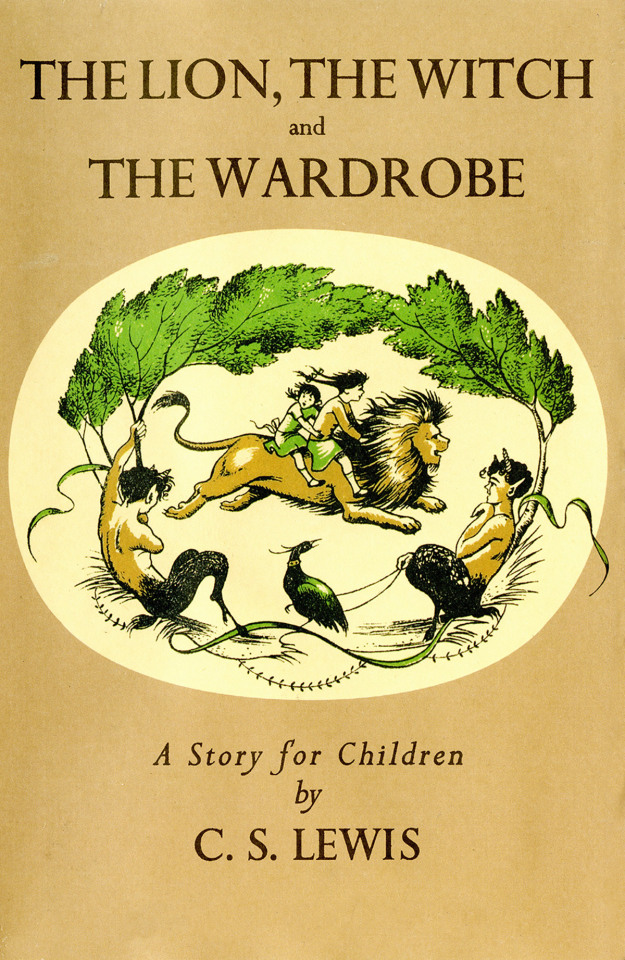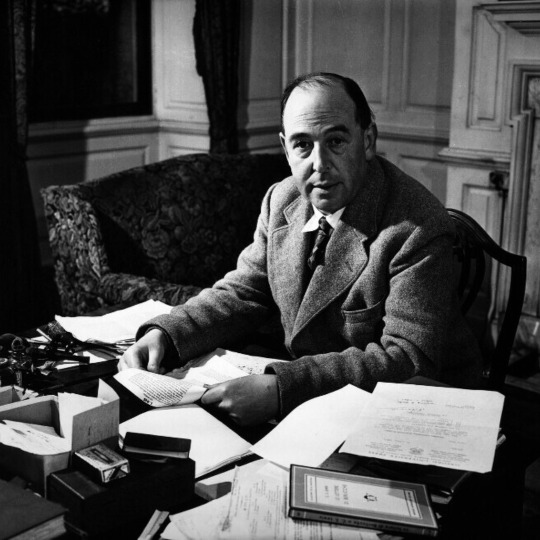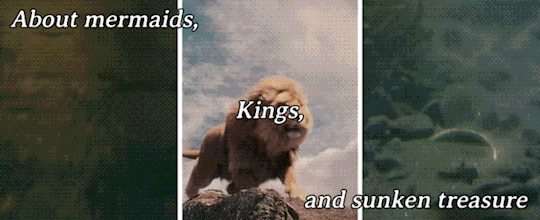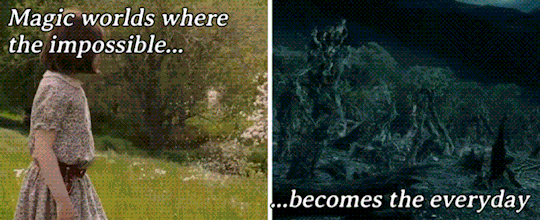#c. s. lewis
Text
“In my own first story I had described at length what I thought a rather fine high tea given by a hospitable faun to the little girl who was my heroine. A man, who has children of his own, said, ‘Ah, I see how you got to that. If you want to please grown-up readers you give them sex, so you thought to yourself, “That won’t do for children, what shall I give them instead? I know! The little blighters like plenty of good eating.” In reality, however, I myself like eating and drinking. I put in what I would have liked to read when I was a child and what I still like reading now that I am in my fifties.”
—C. S. Lewis, “On Three Ways of Writing for Children”
2K notes
·
View notes
Text
To be eaten and to be married to the god might not be so different.
C. S. Lewis, from ‘Till We Have Faces: A Myth Retold’
2K notes
·
View notes
Text
Płacz trochę pomaga – dopóki się płacze. Ale w końcu, wcześniej czy później, trzeba przestać płakać, a wtedy trzeba się zdecydować, co robić dalej.
C. S. Lewis, „Opowieści z Narnii. Srebrne krzesło”
#c. s. lewis#c s lewis#opowieści z narnii#srebrne krzesło#the chronicles of narnia#the silver chair#book#books#książka#książki#cytat#cytaty#quote#quotes#pl#po polsku
2K notes
·
View notes
Quote
There are far, far better things ahead than any we leave behind.
C. S. Lewis
#C. S. Lewis#motivation#quotes#poetry#literature#relationship quotes#writing#original#words#love#relationship#thoughts#lit#prose#spilled ink#inspiring quotes#life quotes#quoteoftheday#love quotes#poem#aesthetic
538 notes
·
View notes
Quote
There are far, far better things ahead than any we leave behind.
C. S. Lewis
#C. S. Lewis#motivation#quotes#poetry#literature#relationship quotes#writing#original#words#love#relationship#thoughts#lit#prose#spilled ink#inspiring quotes#life quotes#quoteoftheday#love quotes#poem#aesthetic
298 notes
·
View notes
Text

#the lion the witch and the wardrobe#c. s. lewis#childrens#fantasy#book poll#have you read this book poll#polls
110 notes
·
View notes
Quote
There are far, far better things ahead than any we leave behind.
C. S. Lewis
#C. S. Lewis#motivation#quotes#poetry#literature#relationship quotes#writing#original#words#love#relationship#thoughts#lit#prose#spilled ink#inspiring quotes#life quotes#quoteoftheday#love quotes#poem#aesthetic
165 notes
·
View notes
Text
what's the "many problems with C.S. Lewis" that everyone tiptoes around? I have heard this from more than one person. What problems? Disavow me of my current delusions if I'm wrong in feeling like I haven't read one strong "problem" in his works, yet
76 notes
·
View notes
Text
"It is not your business to succeed, but to do right; when you have done so, the rest lies with God."
- C.S. Lewis
438 notes
·
View notes
Quote
There are far, far better things ahead than any we leave behind.
C. S. Lewis
#C. S. Lewis#motivation#quotes#poetry#literature#relationship quotes#writing#original#words#love#relationship#thoughts#lit#prose#spilled ink#inspiring quotes#life quotes#quoteoftheday#love quotes#poem#aesthetic
259 notes
·
View notes
Quote
There are far, far better things ahead than any we leave behind.
C. S. Lewis
#C. S. Lewis#motivation#quotes#poetry#literature#relationship quotes#writing#original#words#love#relationship#thoughts#lit#prose#spilled ink#inspiring quotes#life quotes#quoteoftheday#love quotes#poem#aesthetic
466 notes
·
View notes
Text
Lightly men talk of saying what they mean. Often when he was teaching me to write in Greek the Fox would say, "Child, to say the very thing you mean, the whole of it, nothing more or less or other than what you really mean; that's the whole art and joy of words." A glib saying. When the time comes to you at which you will be forced at last to utter the speech which has lain at the center of your soul for years, which you have, all that time, idiot-like, been saying over and over, you'll not talk about the joy of words. I saw well why the gods do not speak to us openly, nor let us answer. Till that word can be dug out of us, why should they hear the babble that we think we mean? How can they meet us face to face till we have faces?
...Too frequently we get only bits and pieces of this core quote from C. S. Lewis's Till We Have Faces—not the whole thing; and sometimes (in at least a couple of online quote sources) mistranscribed from its original, with words changed or dropped out. it''s long past time to post it correctly and in its entirety.
640 notes
·
View notes
Text

“The greatest evils in the world will not be carried out by men with guns, but by men in suits sitting behind desks.”
— C. S. Lewis
#c. s. lewis#literature#lit#literature lover#literature quote#literature quotes#english literature#philosophy#philosophical#philosopher#philosophers#philosophy quotes#philosophy of life#quote#quotes#excerpts#excerpt#booklover#book#bookworm#books#book quotes#book quotations
212 notes
·
View notes
Text
King Edmund the Just - an Easter reflection
“If we confess our sins, He is faithful and just to forgive us our sins and to cleanse us from all unrighteousness.” —1 John 1:9
It’s always bugged me that Edmund, the one for whom Aslan died, was declared “the Just.”
“Just” is defined as “based on or behaving according to what is morally right and fair.” But why, after all that Aslan had done for him, was Edmund not “the Merciful”? Didn’t Aslan’s mercy toward him cause Edmund to be merciful too?
Aslan wasn’t being “just” when he died for Edmund. He wasn’t being “morally right and fair.” If he was, he’d have let Edmund die for his treachery. That’s the moral and fair response to Edmund’s sins.
In the same way, God would be “morally right and fair” to let US die for our sins.
So why is God not described as “merciful and gracious” in this verse? Why is God described as “just,” if justice should mean we are punished for our sins?
I believe, personally, that it’s because of God’s promises. God is faithful and just—God does what is morally fair—when He does what He’s promised to us.
When Jesus took our place on the cross, He took all of God’s wrath. For God to punish us further—for God to not forgive us—after Jesus TOOK our punishment would not be “faithful and just.” This is what “faithful and just” refers to.
This is why Edmund is referred to as “the Just.” I believe that during his reign in Narnia and throughout his life in our world, Edmund is not just in the sense that he exacts punishment on those who are immoral—he is just because he gives mercy. Edmund sees the sacrifice Aslan made for him—and all of Narnia in the process—and he sees the punishment taken.
Let us live by Edmund’s example—and God’s—and be just, extending mercy because the ultimate punishment was taken by Jesus.
Praise God that He is faithful and just regarding the promises He’s made to us. Praise God that He is faithful and just to forgive us when we confess.
Happy Easter, Narnians! He Is Risen!
—Mod Ailora
#thenameofaslan#narnia#the chronicles of narnia#c. s. lewis#edmund#edmund pevensie#king edmund the just#analysis#justice#mercy#forgiveness#mod ailora
56 notes
·
View notes
Text







📖
#Merry Christmas?? wasn't expecting to finish this today lol#my tribute to the stories of my two fave dear Inklings 💖#they've helped so much during the loss of my sister#the chronicles of narnia#the lord of the rings#lord of the rings#narnia#the inklings#c. s. lewis#j. r. r. tolkien#c s lewis#j r r tolkien#;Faith's GIFs#lotredit#narniaedit
105 notes
·
View notes
Text
Now mark yet again the cruelty of the gods. There is no escape from them into sleep or madness, for they can pursue you into them with dreams. Indeed you are then most at their mercy. The nearest thing we have to a defence against them (but there is no real defence) is to be very wide awake and sober and hard at work, to hear no music, never to look at earth or sky, and (above all) to love no one.
C. S. Lewis, from ‘Till We Have Faces: A Myth Retold’
251 notes
·
View notes